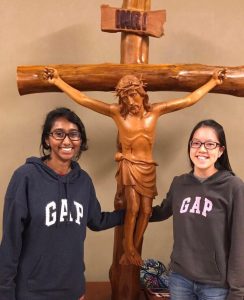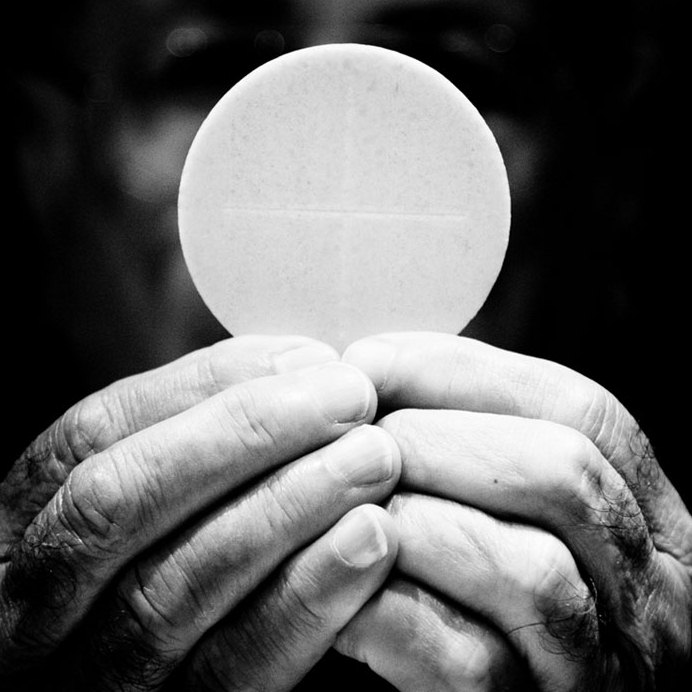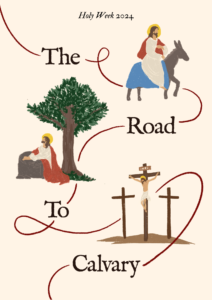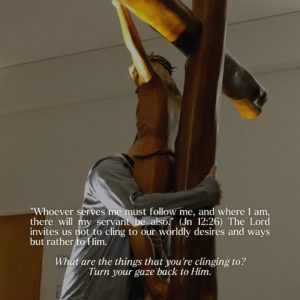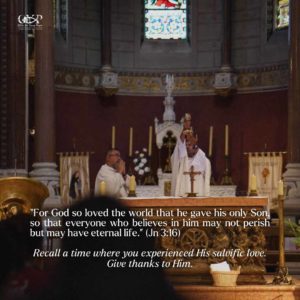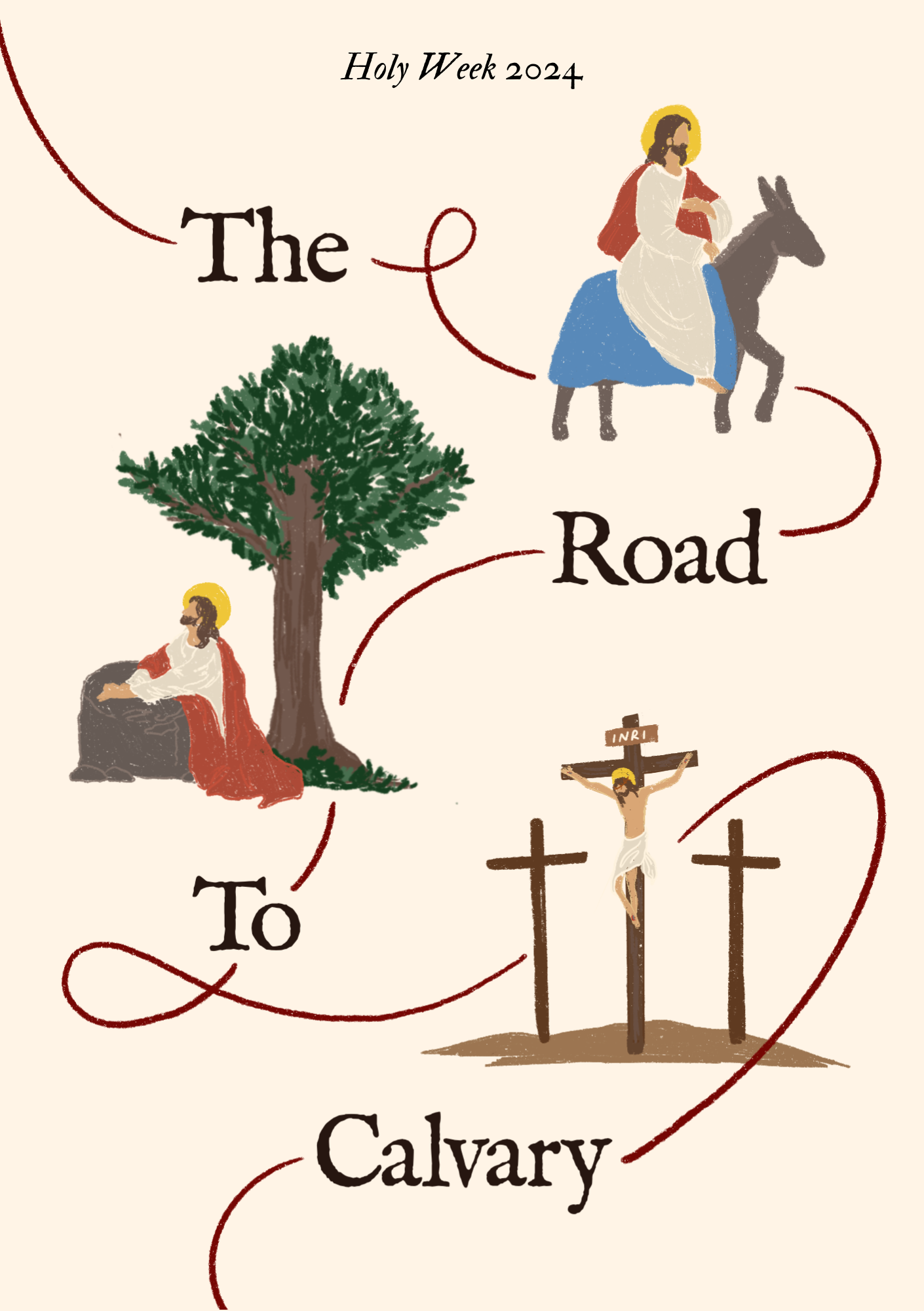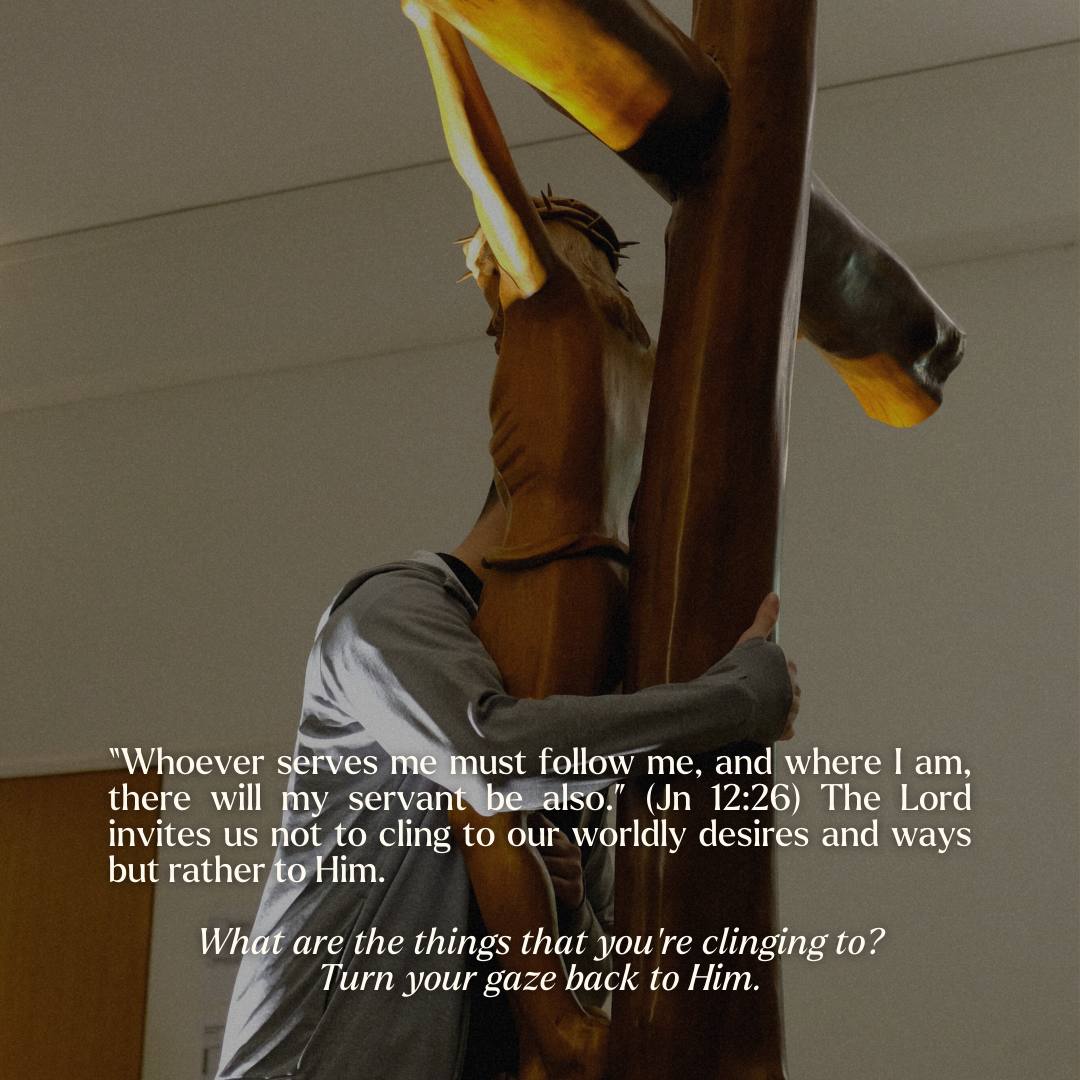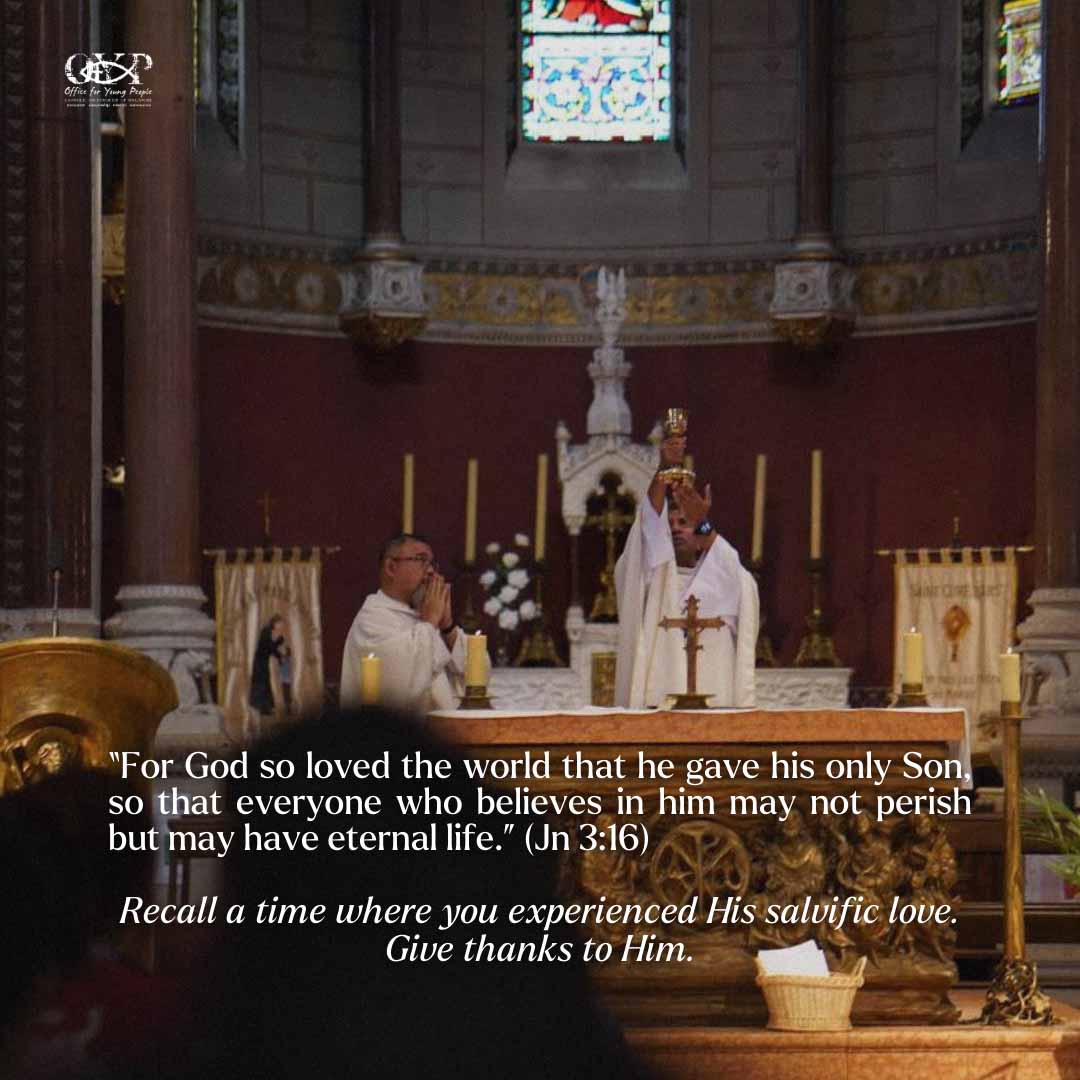By Joveena Fernando
Attending a Protestant secondary school made me curious about and question the Catholic faith that I grew up with. My family would visit Novena Church about once a month on Saturday mornings to attend Eucharistic Adoration. As a lover of tradition, it fascinated me to observe this and sing hymns that sounded ancient. However, there was a scepticism in me about why there was so much grandeur involved around what seemed to be just a wafer.
Until I researched about what really separated us from our Protestant brethren, I did not even realise that we were receiving the actual flesh of Jesus in the Eucharist! Thus, began my quest and may I add, it was, and continues to be, a most mind-blowing experience.
Here is my attempt to summarise my “findings” on the Eucharist:
Who is present in the Eucharist?
“In the most blessed sacrament of the Eucharist “the body and blood, together with the soul and divinity, of our Lord Jesus Christ and, therefore, the whole Christ is truly, really, and substantially contained” (CCC 1374).
The word “substantially” proved to be a little difficult for me. If substantial change referred to matter (as Aristotle defined it), which is finite, how can the “matter” of Christ be present in what is essentially bread and wine?
The church explains this miracle through the amazing phenomenon known as “Transubstantiation”.
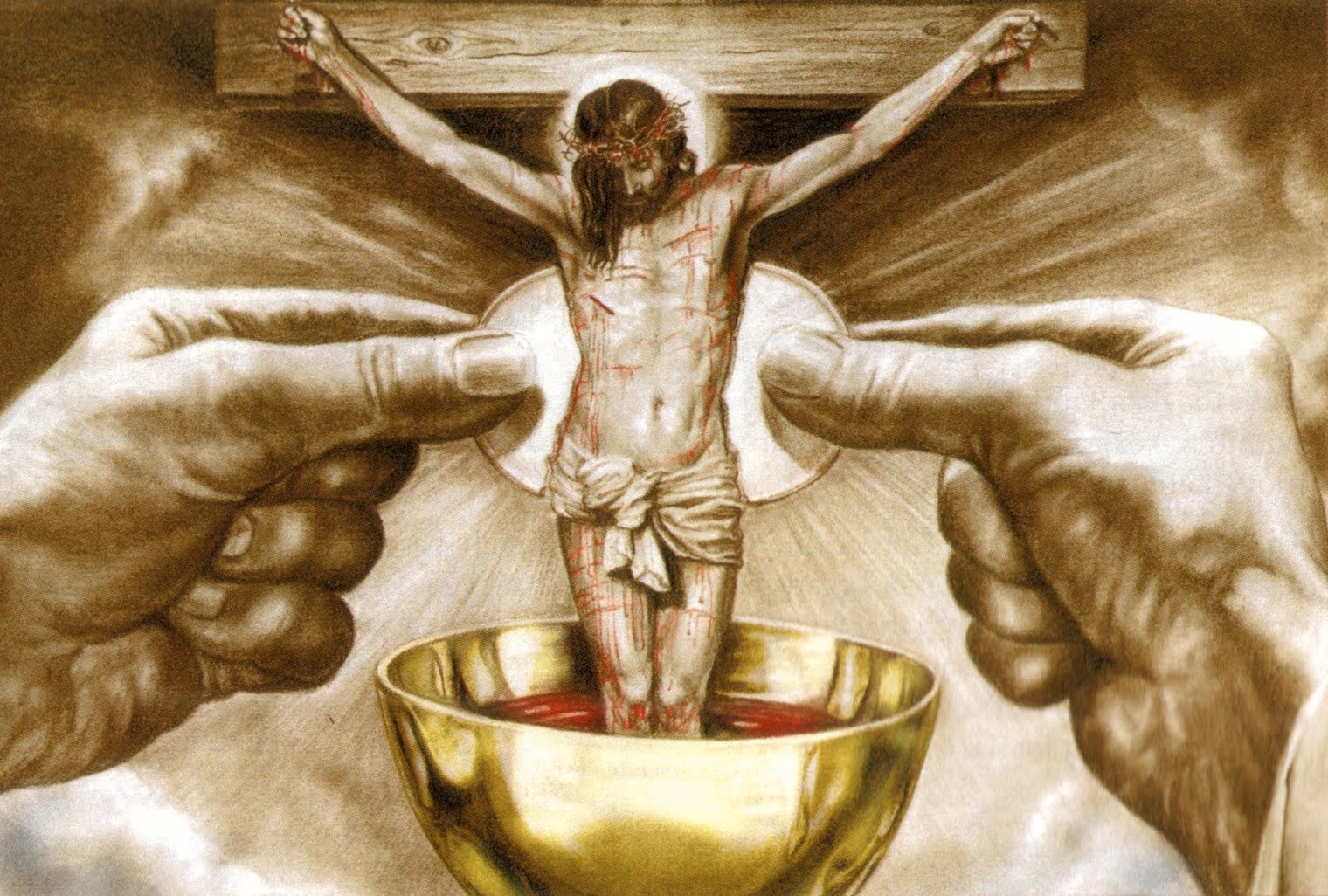
What is Transubstantiation?
Through Transubstantiation, the bread and wine offered at the mass is transformed into the substance of the body and blood of Jesus Christ our Lord.
“…by the consecration of the bread and wine there takes place a change of the whole substance of the bread into the substance of the body of Christ our Lord and of the whole substance of the wine into the substance of his blood. This change the holy Catholic Church has fittingly and properly called transubstantiation.” (CCC 1376).
So, it may seem that physically and chemically, the bread and wine remain so, but we believe that with the Holy Spirit, Christ’s body and blood is sacramentally present in the Eucharist.
“…the power of the words and the action of Christ, and the power of the Holy Spirit, make sacramentally present under the species of bread and wine Christ’s body and blood, his sacrifice offered on the cross once for all.” (CCC 1353)
Rightfully called “the mystery of Faith”, isn’t it?
When does Transubstantiation happen?
The bread and wine are consecrated when “…the bishop or priest acting in the person of Christ the head (in persona Christi capitis) presides over the assembly, speaks after the readings, receives the offerings, and says the Eucharistic Prayer.” (CCC 1348)
This is the moment in Mass that the bells are rung, to indicate the moment of consecration.
Well, that has been a rather technical ride, hasn’t it? On my quest for the truth, I started with the definitions. As you may have noticed, I used the phrase “it seems” several times, to indicate that this is the information that I gathered.
But in matters of our faith, it doesn’t end there, does it? A famous quote, credited to British politician Andrew Bennet goes, “The longest journey you will ever take is the 18 inches from your head to your heart.” I too experienced this struggle as my mind and heart attempted to integrate what I have learned.
How is this possible?
This was one question that I felt that our Blessed Lord answered in a profoundly simple way- through the accounts of the miracles He performed in the Gospels.
To name a few, if He can make the blind see, the lame walk, if He can raise the dead to life, multiply 5 loaves and 2 fishes by a thousand, if He can turn water to wine as He did at the wedding at Cana (a literal substantial change, even on Aristotle’s terms), He is more than capable of changing bread and wine into His Body and Blood, isn’t he?
Nature stands up for the case of our Lord’s capabilities too. If He can create the Sun, the Stars and the Moon, the seas and the Earth, if He can knit us human beings into our mothers’ wombs (Psalm 139:13), can He not transform bread and wine that we bring to Him into Himself?
Perhaps the most moving part of this entire quest for me was to find out:
Why would He do this?
Because He loves us!
Perhaps His most interesting revelation of this phenomenal truth to me came through films, one of which was Avatar.
In Avatar, on th![]() e fictional planet Pandora, where the protagonist Jake Sully learns the ways of the natives, the Na’vi, he encounters the majestic horse-like creatures called dire horses.
e fictional planet Pandora, where the protagonist Jake Sully learns the ways of the natives, the Na’vi, he encounters the majestic horse-like creatures called dire horses.
To ride this creature, the Na’vi must form a physical bond with the creature by allowing the worm-like neural tendrils at the end of their braids to seamlessly connect with similar structures on the other creature (As seen in the picture). It made me realise that Christ is connected to us as He asked us to “Take and eat” His Body and drink His Blood (Matthew 26: 26-27). He, the Lord of Lords and the King of Kings, wants to become miscible, (one), with our bodies; part of our flesh and blood.
It has been a most exciting and blessed time of discovering Christ in the Eucharist. I’ve experienced moments of great joy realising the real presence of Christ, and also guilt from the weight of my sin and unworthiness which is always followed by His mercy and love flooding in my heart. I’ve also had moments of feeling nothing extraordinary in the presence of the Eucharist, which is an amazing reminder of humility and faith- believing without a tangible encounter. I found God in the Eucharist overwhelming me with this gentleness. He made Himself present in bread and wine so that we could behold Him. Oh, how much He loves us, to want to be a part of us in every possible way! think Tolkien sums it all up succinctly:
“Out of the darkness of my life, so much frustrated, I put before you the one great thing to love on earth: The Blessed Sacrament … There you will find romance, glory, honour, fidelity, and the true way of all your loves upon earth.”
I therefore invite you, brothers and sisters, to come and encounter our Lord in the Blessed Sacrament! Let Him love you and radiate his rays of grace upon you.
About the Author:
